In February 2011, the Russian Embassy and the Russian Center for Science and Culture invited young compatriots aged 18 to 28 to take part in the all-European competition of compatriots “The Path to the Stars”, dedicated to the 50th anniversary of Yuri Gagarin’s flight into space.
The response was extremely weak, not to say zero, despite the fact that the prize – a trip to Moscow with a visit to Star City – looked more than tempting. It is extremely unfortunate, since the primacy in the conquest of space is one of those events that every one of those born in the USSR and every descendant of those who were born in any of the Soviet republics can be proud of.
The essay, which became a pass to the Star City of Russian cosmonauts, was written by Angeliki Evstafiou, briefly talking about how on February 12, 1962, Yuri Gagarin, as part of his round-the-world circle of honor, arrived in Greece for two days. We publish this short story with our subsequent comments on the difficult time when Gagarin visited Athens: 1962 was the year of the “Caribbean (Cuban) crisis”, which, if not led humanity to the third world war, gave rise to the cold war.
“On February 12, 1962, my father had just turned 8 years old. Greece then was not at all like today: almost no one else had televisions, and the Greeks learned all the main news of the country and the planet from newspapers.
On that significant day, newspaper boys ran out into the streets of cities, shouting with all their might: “Gagarin is in Athens! Gagarin in Athens! The rooms were sold out instantly, and no news was discussed with such enthusiasm as this one: the first person who saw the Earth from space came to little Greece! After the “lap of honor” around our blue planet, the Soviet cosmonaut made a lap of honor around the world.
The whole capital came out to meet Gagarin: roads not yet clogged with cars and motorcycles – after all, Greece was then still a poor country, just emerging from the most difficult Civil War, along the streets and avenues along which the conqueror of space was supposed to drive, people stood in a dense wall, in several rows, with flowers, posters, balloons. Perhaps with such joy and hope, the Greeks met only Konstantinos Karamanlis, when, after the fall of the seven-year junta of the Black Colonels in 1974, he returned from Paris to Athens.
Yuri Gagarin spent only two days in Greece and then flew to Cyprus. On the day when the mayor of Athens, Angelos Tsoukalas, proclaimed the Soviet cosmonaut an honorary citizen of the Greek capital and presented him with a gold medal, a crowd of 100,000 gathered in the square in front of the municipality, escorting Gagarin to the very Temple of Olympian Zeus and chanting in Russian: “Gagarin, save us! “.
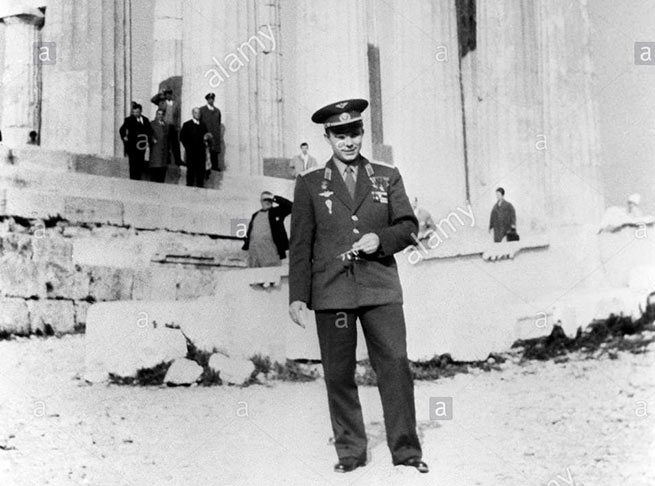
Yuri Gagarin climbed the Sacred Hill of the Acropolis, where during the tour he was told about how the British Lord Elgin plundered the sacred ancient marble of the Parthenon.
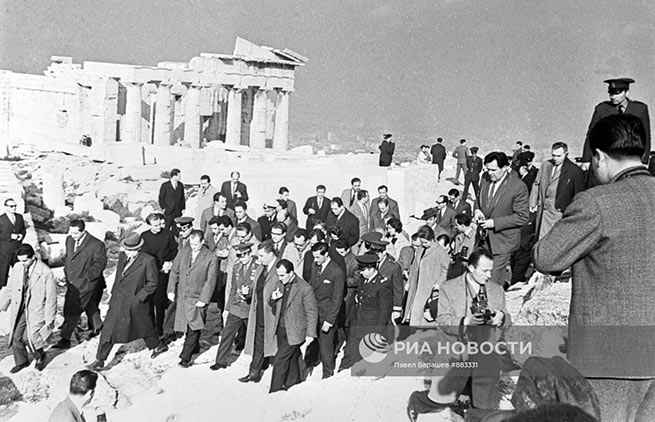
Suddenly, a voice of a woman was heard from the crowd, shouting in Russian: “Peace! Amnesty! ”: the woman pointed Gagarin to that part of the Acropolis, where in 1941 17-year-old Manolis Glezos lowered the Nazi banner and hoisted a blue-white Greek banner in its place. Gagarin raised his hand and, repeating the name of Manolis Glezos, was photographed against the backdrop of the marble columns of the Parthenon.
Manolis Glezos, imprisoned in those years because of his political convictions, was released in December of the same year, thanks to the mobilization of progressive forces around the world. Yuri Gagarin, of course, also made his contribution to the release of the war hero.
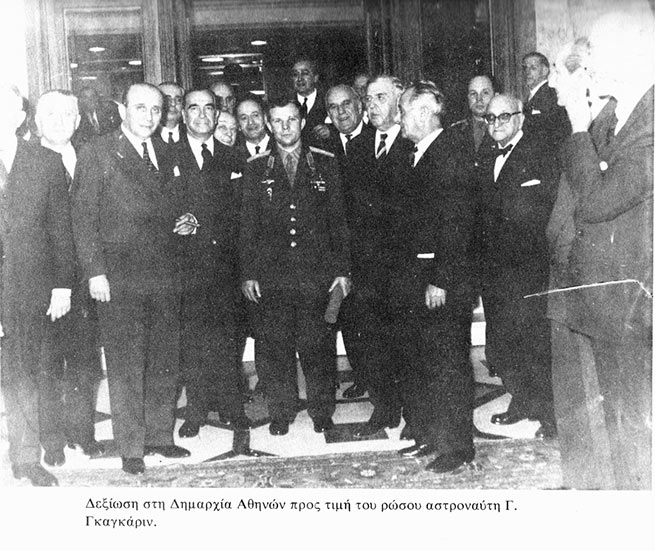
Gagarin at Athens City Hall
My father remembered forever the slender and short figure of an astronaut with an open face and a boyish smile. And there were thousands of Greek boys like him: those who fell ill with space then, who drew people in space suits in their school notebooks and on their desks and space rockets preparing for launch.
The fact that a person can fly, the Greeks probably knew before the rest of mankind. The ancient Daedalus, blinding his feathers with wax, flew away on huge white wings from Crete, taking with him his young son Icarus. Icarus could not cope with the enthusiasm that overwhelmed him from the flight, forgot all the technical instructions that his inventor father had provided, and, rising high into the sky, to the Sun itself, allowed its rays to melt the wax. The young man fell into the sea, posthumously named after him – Ikarian.
Greece will “wait” for its cosmonaut only millennia later, when Fyodor Yurchikhin, a Greek from Batumi and the 98th cosmonaut of Russia, sends greetings from the Universe to his historical Motherland.
Yuri Gagarin took upon himself the heaviest burden of being the first among vast mankind to break away from his native land and fly away in the narrow cabin of Vostok-1 into the unknown. In 1 hour 48 minutes of the first flight in history, what did he change his mind about? What terrible loneliness must have felt? Or – on the contrary – to feel the joy of the fact that we are not alone in space, that behind the blue sunny day and the inky night sky the world does not end, but continues, that every star that flickers palely above our heads is a new world waiting for its Columbus ? No wonder the world called Gagarin “Columbus of the Cosmos”, “Modern Icarus”.
60 years have passed since the first flight of Yuri Gagarin. Maybe my generation or our children will also be lucky, like my father’s generation, and we will welcome the astronaut who first flew outside the solar system? But, probably, in order for this to happen, the world must mature, grow up, unite its efforts for such a difficult step, which my peer, who was born in the Russian village of Klushino, 27-year-old Yuri Gagarin, ventured half a century ago.”
Gagarin’s visit to Athens turned out to be a headache for the Greek government of Konstantinos Karamanlis: and although at the reception at the Soviet embassy, on the occasion of the arrival of the world’s first cosmonaut in Greece, the government and the opposition were present in full force, Viceroy of Greece Konstantinos, heir to the throne and Olympic champion, never met Gagarin. But before that, Gagarin was received by the English queen herself!
On the day Gagarin arrived in Athens, Ilias Bredimas, a deputy from the Democratic Party of the Working People (DKEL), shamed his colleagues in parliament: “You acted cowardly, depriving the young prince, the Olympic champion, of shaking hands with the young conqueror of space!”
The Greek government behaved this way due to the fact that the Soviet cosmonaut arrived in Athens at the invitation of the Greek-Soviet Friendship Society and the Union Party of the Democratic Center, and not the official government of the country. Gagarin was accompanied to Athens by minor diplomatic ranks of the Greek Foreign Ministry, although the members of the Soviet delegation who arrived with the cosmonaut were provided with free accommodation in the prestigious Ding George and Amalia hotels (Gagarin himself was accommodated in the residence of the Soviet ambassador on Herod Attic Street). Even the Prime Minister of the country, Konstantinos Karamanlis, received Gagarin not in an official, but in his office.
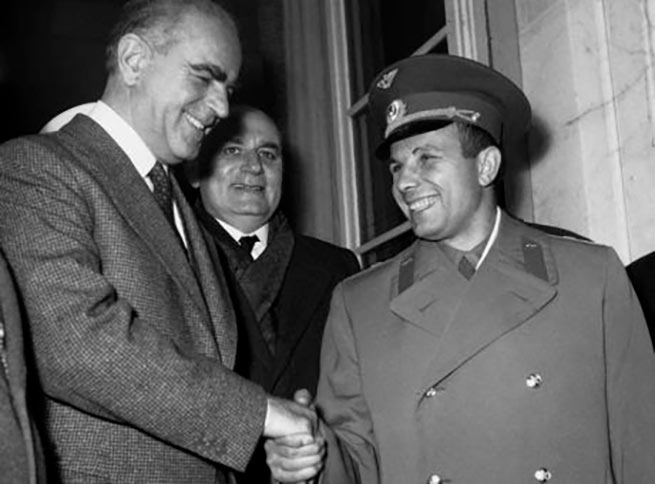
Gagarin with Greek Prime Minister Kostas Karamanlis
There was nothing surprising in the position of Karamanlis and his cabinet, given the close relationship of the Greek government with the government of John F. Kennedy. There was nothing surprising in the position of Greece either because in 1959 in Cuba the partisans overthrew the Batista regime and created a communist state right next to the United States. On April 17, 1961, just five days after Gagarin’s landing, the Cubans defeated a punitive brigade of 1,400 Cuban emigrants sent by the CIA to seize power in Cuba in the Bay of Pigs. Fidel Castro could only find support overseas, in Moscow, and at a meeting of the USSR Defense Council in May 1962, with the consent of the Cuban government, 42 missiles with nuclear warheads and bombers capable of carrying nuclear bombs were deployed in Cuba.
The catch was this: American Jupiter missiles deployed in Turkey could reach the vital centers of the Soviet Union in just 10 minutes, while Soviet missiles took 25 minutes to reach the United States.
Greece was involuntarily involved in the Soviet-American confrontation in the fall of 1962: this is evidenced by the recording of the conversation between the Minister of Foreign Affairs of Greece of that time, Evangelos Averov, and the USSR Ambassador to Greece, Nikolai Koryukin, dated October 26, 1962, published last year, which is still classified “top secret”.
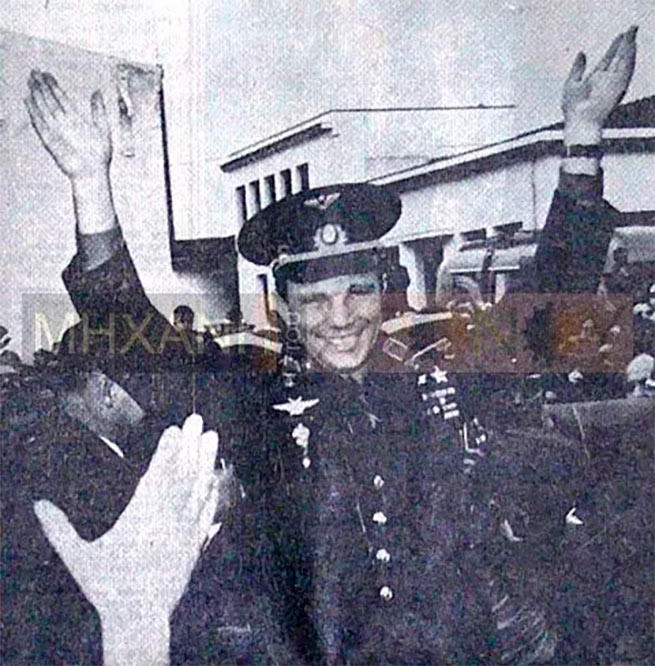
Gagarin in Athens
It can be understood from the conversation that if the United States made an attempt at military intervention in the affairs of Cuba, the Soviet government would hit the American missile bases in Thrace or Berlin, but most likely in Greek Thrace.
In the note, which was handed over to Averov by a Soviet diplomat, Greece was invited to condemn the American government, whose actions “could lead humanity to a catastrophe. We hope that the Greek government will take the proposed measures and do everything possible to prevent unpleasant consequences that will bring humanity to the brink of the abyss.”
Evangelos Averov replied that Greece would act with all due caution in such cases, but, nevertheless, could not accept some points of the note, such as the one where it says that “the United States is undermining the world” and where the Americans are accused of adventurism .
Averov’s position extremely upset Koryukin: “Greece,” the ambassador said, “should realize its responsibility. If the USSR had wanted to do what the United States is doing with respect to Cuba, then three years ago it would have embargoed Greece, relying on the same arguments – on your possession of missiles … Your position is irresponsible, since we are facing mortal danger.”
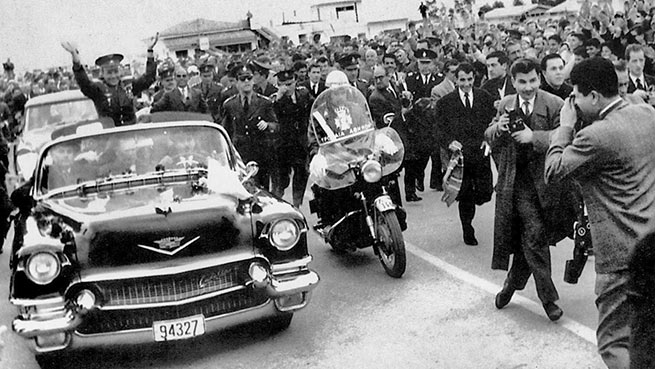
On the streets of Athens
Evangelos Averov replied to the USSR ambassador that Greece was not afraid of the war, although the very word was extremely disgusting to the Greeks. The negotiations have reached a complete deadlock. Averov noted that the bases located in Greece are of a defensive nature, and, unable to resist, added: “After the Second World War, you tried – more precisely, well-known international movements – to exterminate and subjugate Greece, but we, fortunately, defended effectively and saved our homeland. So after that attempt, we fear for our safety and therefore organize defense with all care.
Before dispersing, Nikolai Koryukin and Evangelos Averov each said for their part: “We believe that Cuba is arming for defense purposes,” Koryukin said. “I repeat that we stand on the positions of an honest ally of the United States and a loyal member of the Atlantic Union,” Averov announced. Nikolai Koryukin, who was fluent in French, spoke only Russian, through an interpreter.
These are the circumstances under which Yuri Gagarin’s visit to Athens took place. The crowd of thousands of Athenians, following on the heels of Yuri Gagarin, could not even suspect what was happening behind the diplomatic scenes. This is how it always happens: peoples turn out to be much better and more perspicacious than those who govern them.


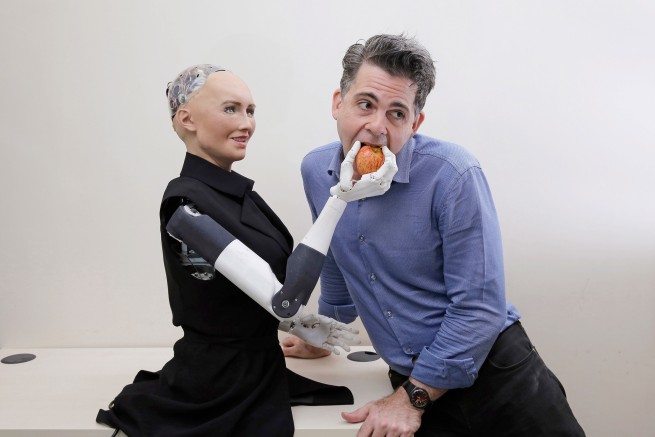


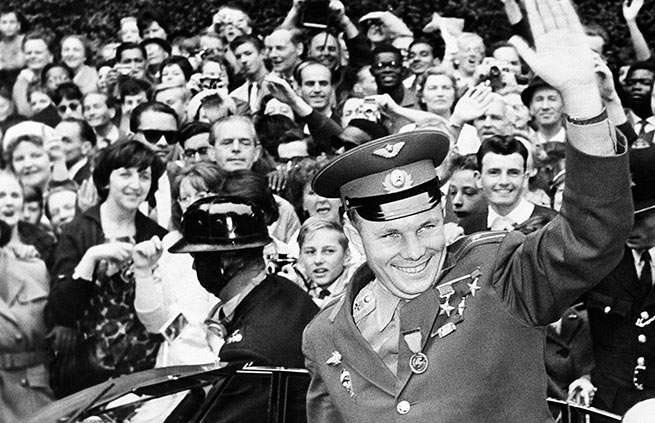

More Stories
In Symi, Antikyra and Arachova, barbecues started smoking: Greeks celebrate Easter on a grand scale
History and traditions of Easter
Greek journalist acquitted by court for uncovering Holy Fire “hoax”